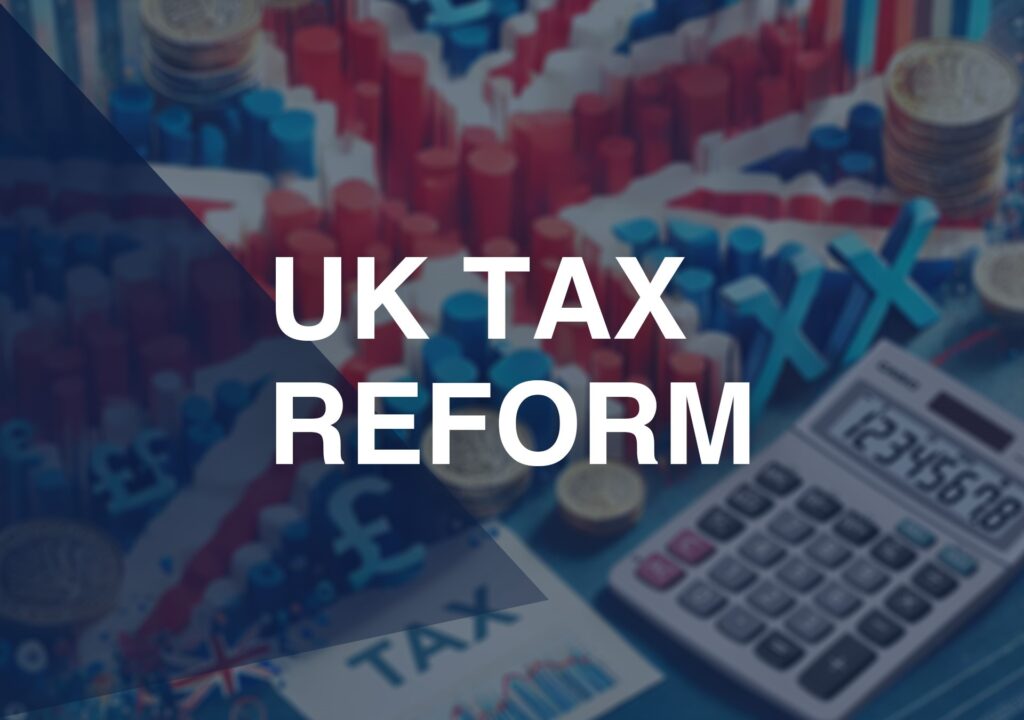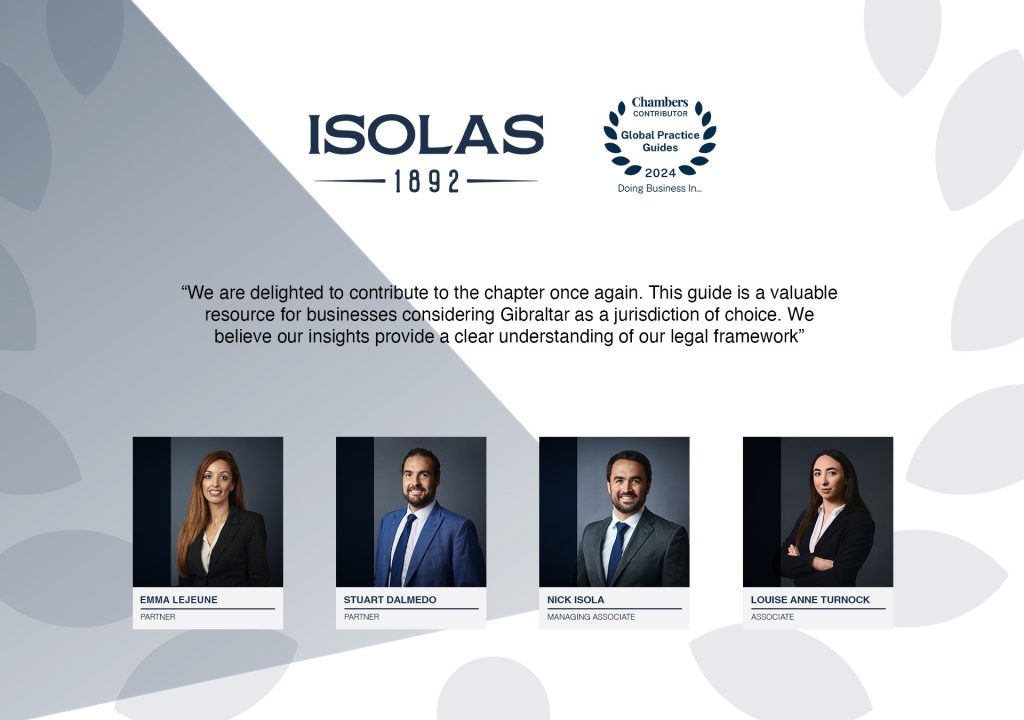Gibraltar publishes rules implementing EU rules against Tax Avoidance Practices
H.M Government of Gibraltar has today published in the Gibraltar Gazette the Income Tax 2010 (Amendment No. 3) Regulations 2018 (“the Regulations”) which transposes into the Income Tax Act 2010 (the “Act”) Council Directive (EU) 2016/1164 (“ATAD”) which lays down rules against tax avoidance practices that directly affect the functioning of the internal market. The purpose of ATAD is to provide for the uniform legislative implementation of some of the Organisation for Economic Co-operation and Development (OECD) Base Erosion and Profit Shifting (BEPS) recommendations.
ATAD establishes minimum standards with respect to the following five areas:
1. interest limitation;
2. exit taxation;
3. a general anti-abuse rule;
4. controlled foreign company rules; and
5. hybrid mismatches.
The provisions of the Regulations will affect financial periods commencing on or after 1st January 2019. This publication provides a summary of the provisions of the Regulations.
1. Interest limitation rule
The Regulations introduce a new interest limitation rule into the Act, which applies to ordinarily resident companies which have assessable income under the provisions of the Act, or permanent establishments of any such company resident in another European Union Member State or a third country. Financial undertakings (as defined in the Regulations, and which includes each type of entity regulated by an EU Regulation or Directive) and standalone entities (as defined in the Regulation as a taxpayer that is not part of a consolidated group for financial accounting purposes, and has no associated enterprise of a permanent establishment situated in a country other than Gibraltar) are specifically excluded from the scope of the interest limitation rule.
Taxpayers which are covered by the interest limitation rule will be subject to a limitation on the deductibility of exceeding borrowing costs (as defined in the Regulations). Exceeding borrowing costs which are incurred by a taxpayer shall be deductible in the tax period in which they are incurred only up to the greater of either:
i) 30% of the taxpayer’s taxable interest revenues before interest, tax, depreciation and amortisation; or
ii) €3,000,000.
In calculating the exceeding borrowing costs, a taxpayer may exclude borrowing costs arising from loans that were contracted before 17 June 2016 excluding any subsequent modification of such loans and loans used to finance long-term infrastructure projects where the project operator, borrowing costs, assets and revenues are all within the European Union. A long-term infrastructure project is recognised public interest project to provide, upgrade, operate and/or maintain a large scale asset.
Taxpayers that are members of consolidated groups for financial accounting purposes may choose to either:
i) fully deduct its exceeding borrowing costs if it can demonstrate that the ratio of its equity over its total assets is equal to or higher than the equivalent ratio of the group where the ratio of the taxpayer’s entity over its total assets is considered to be equal to the equivalent ratio of the group if the ratio of the taxpayer’s equity over its total assets is lower by up to 2% and all assets and liabilities are valued using the same method as in the consolidated accounts; or
ii) deduct the exceeding borrowing costs at a higher amount which shall refer to the consolidated group for financial accounting purposes, calculated first by determining the group ratio, and then multiplying this ratio by the taxpayer’s taxable interest revenues before interest, tax, depreciation and amortisation.
Exceeding borrowing costs not deductible in a tax period may be carried forward indefinitely. Unused interest capacity which cannot be used in a given tax period may be carried forward for 5 years.
2. Exit taxation
H.M Government of Gibraltar has chosen to exercise the derogation provided under article 11 paragraph 5 of ATAD allowing for exit taxation rules to be adopted and published into the laws, regulations and administrative provisions of Member States by 31 December 2019 and so the Regulation does not make any amendments in respect of exit taxation.
3. General anti-abuse rule
It is understood that section 40 of the Act already provides for general anti-avoidance rules which are in accordance with the standards established by ATAD, and so no amendments have been made in this regard.
4. Controlled foreign company (“CFC”) rule
CFC rules have been introduced under which the non-distributed income of a company or permanent establishment arising from non-genuine arrangements which have been put in place for the essential purpose of obtaining a tax advantage must be included as income of the taxpayer for that tax period.
In order for an entity or permanent establishment to be considered as a CFC under the Regulations, two conditions must be satisfied. Firstly, in the case of an entity, the taxpayer must by itself or together with its associated enterprises, hold direct or indirect participation of more than 50% of the voting rights or capital, or must be entitled to receive more than 50% of the profits of that entity. Secondly, the actual tax paid by that entity or permanent establishment must be lower than the difference between the tax that would have been charged on the entity or permanent establishment in accordance with the Act and the actual tax paid on its profits.
An arrangement or a series thereof is regarded as non-genuine under the Regulations to the extent that the entity or permanent establishment would not own the assets or would not have undertaken the risk which generates all or part of its income if it were not controlled by a company where the significant people functions which are relevant to those assets and risks, are carried out and are instrumental in generating the CFC’s income. Where there is such a non-genuine arrangement, the income to be included will be calculated in accordance with the arm’s length principle.
In order to ensure that there is no double deduction:
i) where the entity distributes profits to the taxpayer, and those distributed profits are included in the assessable income of the taxpayer, the amounts of income previously included as income of the taxpayer shall be deducted from the income of the taxpayer when calculating the amount of tax due on the distributed profits;
ii) where the taxpayer disposes of its participation in the entity of the business carried out by the permanent establishment, and any part of the proceeds from the disposal previously having been included in the income of the taxpayer, that amount shall be deducted from the income of the taxpayer when calculating the amount of tax due on those proceeds; and
iii) the Commissioner of Income Tax shall also allow a deduction of the tax paid by the entity or permanent establishment in its state of residence or location from the tax liability of the taxpayer in accordance with section 37 of the Act.
Entities or permanent establishments with accounting profits of no more than €750,000, and non-trading income of no more than €75,000 or those which the accounting profits amount to no more than 10% of its operating costs for the tax period will not be considered as CFCs under the Regulations.
5. Hybrid mismatches
Council Directive (EU) 2017/952 (“ATAD II”) has subsequently amended ATAD with regard to hybrid mismatches. Whilst ATAD covers intra-EU hybrid instruments and hybrid entity mismatches, ATAD II extends the scope of these rules to hybrid mismatches involving third parties. The Regulations transpose the provisions contained within ATAD and it is envisaged that H.M Government of Gibraltar will extend the scope of these rules in accordance with ATAD II at a later date given that ATAD II needs to be transposed by 31 December 2019.




